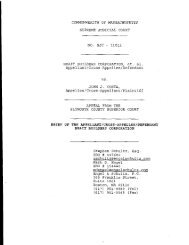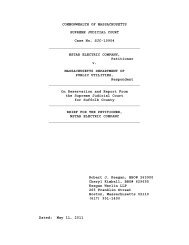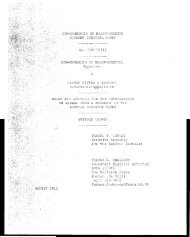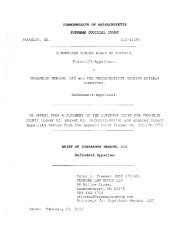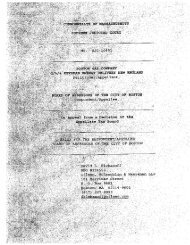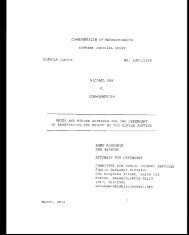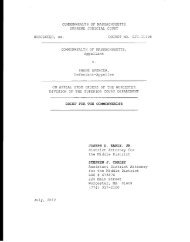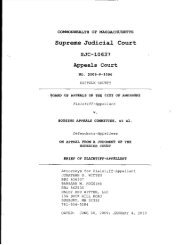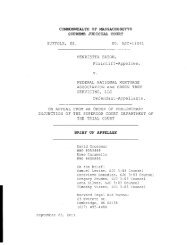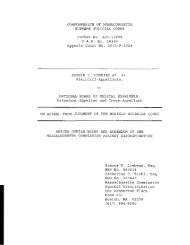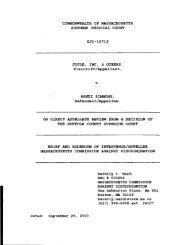463 Mass. 353 - Appellee Commonwealth Brief - Mass Cases
463 Mass. 353 - Appellee Commonwealth Brief - Mass Cases
463 Mass. 353 - Appellee Commonwealth Brief - Mass Cases
Create successful ePaper yourself
Turn your PDF publications into a flip-book with our unique Google optimized e-Paper software.
seized. But the testimony of the defendants in Mendes<br />
was never the "fruit" of any primary illegality<br />
warranting invocation of exclusionary principles. The<br />
defendant in this case was not placed, by illegal<br />
conduct that should have led to suppression and ought<br />
to be deterred, in the same "Catch-22" position as the<br />
defendant in Charras.<br />
To conclude, there is no reason why the normal<br />
harmless error analysis, in which the Degraca factors<br />
are applied to "the totality of the record before us,<br />
weighing the properly admitted and the improperly<br />
admitted evidence together," Tyree, 455 <strong>Mass</strong>. at 701,<br />
should not continue to be undertaken in reviewing<br />
Melendez-Diaz issues for harmless error.<br />
B. Applying the Degraca/Mahdi Factors, The<br />
Record Demonstrates Beyond A Reasonable<br />
Doubt That The Admission Of The<br />
Certificate of Analysis Was Harmless<br />
Error As To Ronald Mendes.<br />
In light of the Degraca factors, in particular in<br />
consideration of "the premise of the defense" and<br />
"whether the erroneously admitted evidence was merely<br />
cumulative of properly admitted evidence," the<br />
Melendez-Diaz error was harmless as to Ronald Mendes.<br />
The first Degraca factor, "the importance of the<br />
evidence," it is true that the certificates were part<br />
37



